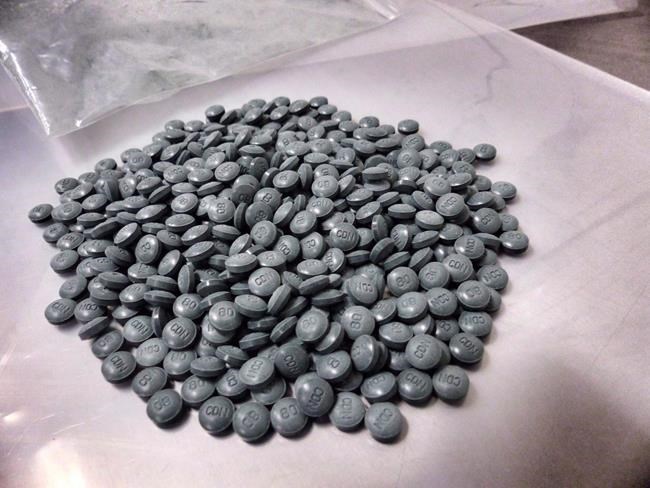The B.C. government will announce new measures today to tackle a drug overdose crisis that continues to claim hundreds of lives each month.
Judy Darcy, the minister of mental health and addictions, has scheduled a news conference in Vancouver. New overdose statistics were released on Thursday.
“It really is devastating,” she said of the new numbers. “We still are seeing an average of four people dying a day in British Columbia and this trend is worsening — both in British Columbia and across the country.”
The B.C. Coroners Service reported there were 80 suspected drug overdose deaths in September, up from 61 in the same month last year — an increase of 31 per cent.
The year-to-date totals show that 1,103 people died from January through to the end of September, nearly twice as many as the 607 deaths in the same period in 2016.
In Victoria, there were 70 deaths in the first nine months of 2017 — three more than all of last year.
The coroners service said the powerful synthetic opioid fentanyl was detected in 83 per cent of the deaths this year — an increase of 147 per cent over the same period in 2016. In most cases, fentanyl was mixed with cocaine, heroin or methamphetamines.
Carfentanil, which is even more deadly than fentanyl, was detected in 37 suspected overdoses between June and September, the report said.
Darcy said the province is “redoubling” its response to the crisis by providing safe injectable medications to more people living with addictions, while increasing access to harm-reduction sites and naloxone, which reverses the effects of opioid overdose.
In addition, she said, the government and health authorities are ramping up an “anti-stigma” campaign to reach out to people who are using drugs alone at home.
The statistics show that almost nine out of 10 overdose deaths occur indoors, and more than half are in private residences. There were no deaths at any of the supervised consumption sites or overdose-prevention sites.
“So that’s about overcoming stigma, that’s about everybody in a family, in a community, friends, reaching out and having conversations with people and reducing the stigma,” Darcy said.
Liberal critic Jane Thornthwaite acknowledged that Darcy is a new minister and “has her heart in the right place” on the issue.
“But when we’re looking at the numbers that just keeping going up and up and up, just pouring more money into the same system is not working,” she said. “We have to change the system.
“What I’ve always advocated for, and will continue advocating for, is more services in the front end, the prevention end of it. Getting into the schools, getting more mental-health services into the schools to prevent these problems to begin with.”
Heather Hobbs, manager of harm-reduction services with AIDS Vancouver Island, said the NDP government is saying the right things, but has yet to deliver.
“We, at this level, are not seeing any real change,” she said.
“So there’s no influx of resources to this point. It doesn’t feel like an emergency response from where we stand.”
Hobbs said the government needs to provide more details about how it plans to deliver new services and what the targets will be.
“I think things are all a little vague at this point,” she said.
“So when we talk about expanding access to injectable opioid treatments, for example, what does that specifically look like?”
Darcy will be joined at this morning’s announcement by Vancouver Mayor Gregor Robertson and officials from Vancouver Coastal Health and the B.C. Centre on Substance Use.



